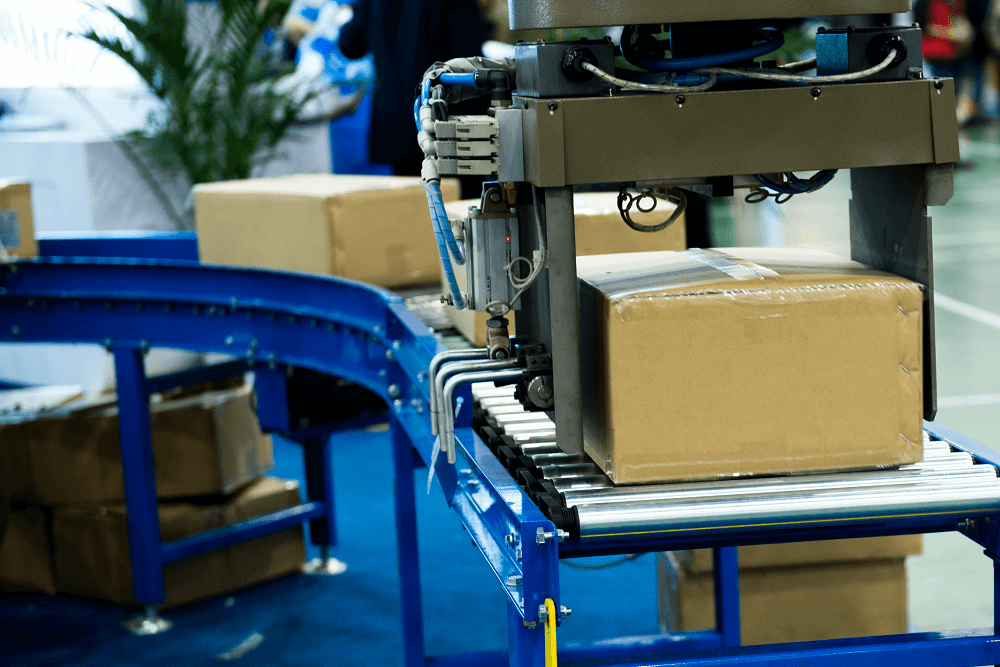Divisions
Not Finding What You're Looking For?
Head over to our contact page and tell us what you’re looking for and we’ll handle the rest!
Head over to our contact page and tell us what you’re looking for and we’ll handle the rest!

Effective material handling is a cornerstone of operational success for businesses of all sizes, but especially for small enterprises aiming to maximize efficiency, reduce costs, and enhance safety. From streamlining processes to embracing automation, this article explores material handling best practices tailored to the unique needs of small businesses. Whether you’re dealing with inventory management, warehouse operations, or production processes, these strategies can make a significant impact on your overall success.
Safety is non-negotiable in any material handling environment. Implementing proper safety protocols and training programs for employees is paramount. Equip workers with personal protective equipment, ensure clear signage, and establish emergency procedures. Regularly review and update safety guidelines to address potential risks and maintain a secure working environment.
Space is often a precious commodity for small businesses. Effective organization and utilization of space can lead to improved workflow and reduced clutter. Implement a well-organized layout that minimizes travel distances and maximizes accessibility to items. Utilize storage solutions such as racks, shelving, and bins to keep inventory easily accessible and neatly arranged.
Automation can significantly enhance material handling efficiency by reducing manual labor and human errors. Consider adopting conveyor systems, robotic pickers, and automated storage systems to streamline processes. While initial investment may be higher, the long-term benefits in terms of increased productivity and accuracy can far outweigh the costs. Your Indoff representative can help you analyze your options to find a cost-effective strategy for today and the future.
Accurate inventory management is crucial to prevent overstocking, stockouts, and operational disruptions. Utilize inventory management software to track stock levels, reorder points, and lead times. Regularly conduct audits to identify slow-moving or obsolete items and adjust purchasing strategies accordingly.
Selecting appropriate equipment for material handling is essential. Small businesses should invest in equipment that aligns with their specific needs. Forklifts, pallet jacks, and hand carts are essential tools for moving heavy loads. Ensure equipment is properly maintained to prevent breakdowns and ensure worker safety.
Applying lean principles to material handling can drive efficiency and eliminate waste. Optimize processes to reduce unnecessary steps and minimize idle time. Identify bottlenecks and inefficiencies and implement solutions to improve overall workflow.
Well-trained employees are key to effective material handling. Provide comprehensive training on equipment operation, safety procedures, and best practices. Regularly refresh training to ensure employees are up to date with the latest protocols and technologies.
Small businesses often operate on tight budgets. Explore cost-saving strategies with Indoff such as bulk purchasing, negotiated deals with suppliers, and optimizing transportation routes. Minimize packaging waste and explore eco-friendly packaging solutions to reduce costs and environmental impact.
Leverage technology to enhance material handling processes. Barcode scanners, RFID systems, and tracking software can streamline inventory management and reduce errors. Cloud-based solutions can facilitate real-time tracking and communication across multiple locations.
Efficient material handling begins with accurate demand forecasting and inventory management. By analyzing historical data and market trends, small businesses can better anticipate customer needs and optimize their inventory levels. This prevents overstocking or understocking, reducing storage costs and ensuring timely order fulfillment.
Proper packaging and unitization play a vital role in material handling efficiency. Choose packaging materials that are lightweight yet sturdy, minimizing unnecessary weight and reducing shipping costs. Implement unitization techniques, such as palletizing and shrink-wrapping, to secure items for safe transportation and storage.
Employ dynamic slotting strategies to enhance picking and stocking efficiency. Regularly analyze order patterns and item popularity to determine the optimal placement of products within your storage facility. This minimizes travel time for pickers, speeds up order fulfillment, and reduces labor costs.
Cross-docking is a strategy that involves transferring goods directly from the receiving dock to the shipping dock without intermediate storage. This technique minimizes the need for storage space and handling, leading to faster order processing and reduced warehousing costs. Cross-docking is particularly effective for items with short shelf lives or high demand.
Embrace sustainable practices in material handling to reduce your environmental impact while cutting costs. Choose eco-friendly packaging materials, implement recycling programs, and explore energy-efficient technologies. Sustainable material handling not only benefits the environment but also enhances your company’s reputation and attracts environmentally-conscious customers.
Material handling processes should be continuously monitored and evaluated for areas of improvement. Regularly analyze data to identify patterns, trends, and opportunities for optimization. Encourage feedback from employees and seek their insights into areas that need enhancement.
Effective material handling is the backbone of streamlined operations and growth for small businesses. By prioritizing safety, optimizing space, embracing automation, efficient inventory management, and leveraging technology, small enterprises can enhance their overall efficiency, reduce costs, and create a safer work environment. These practices not only ensure smooth operations but also position small businesses for long-term success in an increasingly competitive landscape.

As small businesses navigate the intricacies of material handling, partnering with a seasoned expert can be a game-changer. Indoff, a leading provider of material handling solutions, offers tailored guidance to optimize material handling processes for businesses of all sizes. With a deep understanding of diverse industries and a commitment to innovation, Indoff’s experts can assess your unique needs, recommend the right equipment, and design customized solutions that align with your goals. By leveraging our expertise and experience, your small businesses can elevate material handling practices, boost efficiency, reduce costs, and position yourself for sustained success in the ever-evolving business landscape. With Indoff by your side, you’re empowered to master material handling and pave the way for growth and excellence.
Are you ready to improve your material handling process? Give your local Indoff representative a call today and talk to a member of our team to get started.
Courtney joined Indoff in 2010. She brings years of experience in project management and tech solutions and is responsible for supporting our Partners’ sales efforts.
Phone: (314) 997-1122 ext. 1291
courtney.brazell@indoff.com
Josh joined Indoff in 2013 as part of the acquisition of Allied Appliance and was paramount to Indoff’s acquisition of Absocold, a manufacturer of refrigerators and microwaves, in 2017. In 2025, Josh was promoted to President of Indoff, where he collaborates closely with Indoff’s Partners and Marketing department to develop and implement strategies that enhance the Indoff brand. Josh’s leadership and industry knowledge are instrumental in ensuring Indoff remains a leading provider of business solutions nationwide.
Phone: (314) 997-1122 ext. 1107
josh.long@indoff.com
Jim joined Indoff in 1988 after spending 5 years at Ernst & Young, where he specialized in audit and accounting for privately-held businesses. Jim is responsible for the day-to-day management of Indoff.
Phone: (314) 997-1122 ext. 1203
jim.malkus@indoff.com
John’s background includes the start up and acquisition of several successful business ventures, and he provides strategic planning and overall corporate governance.
Phone: (314) 997-1122 ext. 1201
john.ross@indoff.com